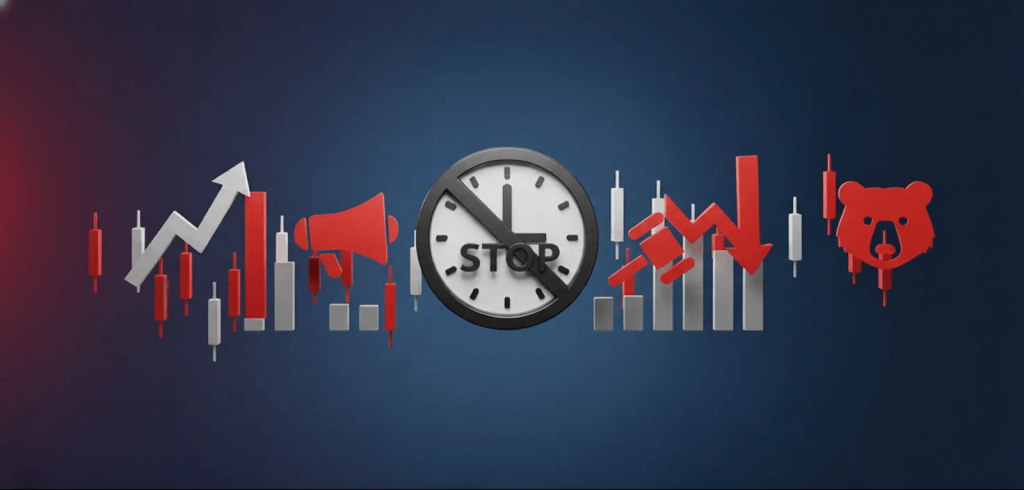
Quem é o formador de mercado e como ele funciona?
Conteúdo
O termo "formador de mercado" é frequentemente usado sem uma compreensão completa do seu significado. No entanto, esse conceito é crucial para o mundo dinâmico e muitas vezes ambíguo dos mercados financeiros. Os formadores de mercado são responsáveis por comprar e vender títulos continuamente para manter a liquidez das negociações. Eles podem ser indivíduos ou organizações, como bancos. Eles desempenham um papel crucial no fornecimento de liquidez ao mercado, o que facilita negociações mais simples e eficientes para todas as partes.
Como funcionam os formadores de mercado
Formadores de mercado focam principalmente em tornar a liquidez acessível aos traders. No contexto financeiro, liquidez é a capacidade de comprar ou vender um ativo com pouco ou nenhum impacto em seu preço. A capacidade de um mercado robusto com alta liquidez de concluir transações com rapidez e sucesso a define.
A capacidade dos formadores de mercado de fornecer execuções rápidas de operações advém de seu portfólio de ativos bem administrado e diversificado, que inclui ações, títulos e outros instrumentos financeiros. Sua abordagem de inventário inclui uma análise completa dos padrões de mercado, dados históricos e indicadores econômicos atuais, a fim de prever movimentos futuros do mercado. Para reduzir o risco, eles diversificam deliberadamente seus ativos entre setores e classes de ativos. Essa diversidade garante que sua exposição à volatilidade do mercado seja equilibrada e que eles possam lidar com uma variedade de condições de mercado.
Eles priorizam a gestão eficaz de riscos em suas operações. Os formadores de mercado usam a avaliação de riscos com técnicas de hedge para ajudar a compensar os riscos de possuir diversos ativos. Eles utilizam derivativos e outros instrumentos financeiros em estratégias de hedge para proteger seus principais ativos de possíveis perdas. Essas estratégias estão sempre mudando para se adaptar à situação do mercado.
O spread de compra e venda
Além de gerar renda para os formadores de mercado, o spread bid-ask é uma parte crucial de seu mecanismo de negociação. Os formadores de mercado definem esse spread com base em sua própria exposição ao risco, na liquidez do ativo e na volatilidade atual do mercado. Essa diferença varia em reação às circunstâncias do mercado, aumentando em períodos de incerteza e diminuindo quando os mercados se estabilizam. Esse ajuste estabelece um equilíbrio entre a geração de lucro e a necessidade de manter condições de negócios competitivas e atraentes.
Para os traders, o spread bid-ask é um fator importante, pois determina diretamente o custo da negociação. Compreender esse spread fornece insights sobre a liquidez e as circunstâncias do mercado, que influenciam as táticas e escolhas de negociação.
Os formadores de mercado desempenham um papel importante na manutenção da estabilidade dos preços de mercado, especialmente em períodos turbulentos. Eles absorvem o excesso de oferta ou demanda, minimizando flutuações excessivas de preços e preservando a confiança do mercado. Suas operações de negociação contínuas garantem que vendas ou compras por pânico não resultem em volatilidade severa dos preços, especialmente em meio a mudanças rápidas no mercado.
Além disso, os formadores de mercado incentivam a negociação de ativos menos conhecidos ou mais recentes. Sua dedicação a fornecer liquidez pois esses ativos contribuem para seu estabelecimento no mercado, apoiando o desenvolvimento e a variedade no ecossistema financeiro.
Os formadores de mercado são essenciais para manter o bom funcionamento dos mercados financeiros. Sua competência em gestão de estoques, definição de spreads de compra e venda e estabilização de mercado por meio de negociações estratégicas os posiciona no centro do ecossistema do mercado.
Para ver como um formador de mercado funciona no mundo real, imagine uma casa de câmbio no aeroporto. Você está voando de Paris para Nova York e quer converter € 100 para dólares americanos no Aeroporto Charles de Gaulle. A casa de câmbio do aeroporto se oferece para receber seus € 100 e lhe dar US$ 110. Esse é o preço de venda — o preço pelo qual eles estão vendendo dólares americanos. Após a viagem, você ainda tem os US$ 110 e quer converter seus dólares americanos de volta para euros. A casa de câmbio lhe dará uma cotação de € 97 para seus dólares americanos. Esse é o preço de compra — o preço pelo qual eles comprarão dólares americanos.
A casa de câmbio acabou de arrecadar € 3. Eles estão atuando como formadores de mercado, o que significa que estavam sempre prontos para comprar e vender moeda sempre que você quisesse. Você nem precisa encontrar alguém que quisesse o valor exato em dólares naquele momento. A casa de câmbio assumiu o risco de manter a moeda que poderia desvalorizar se a taxa de câmbio mudasse, e eles obtiveram um pequeno lucro com o spread entre compra e venda.
Este exemplo demonstra a liquidez instantânea que os formadores de mercado fornecem para que você possa trazer os dólares hoje, mesmo que não seja a melhor taxa. Nos mercados financeiros, os formadores de mercado desempenham o mesmo papel, garantindo que sempre haja um comprador e um vendedor.
You may also like

Tipos de formadores de mercado
Nem todos os formadores de mercado funcionam da mesma maneira — cada mercado exige uma abordagem diferente. Abaixo, detalhamos os principais tipos:
Criadores de mercado de câmbio/CFD de varejo
Geralmente, corretoras que oferecem operações em câmbio e contratos por diferença (CFDs) em nome de investidores individuais ou de varejo, frequentemente utilizam um modelo de mesa de negociação com formador de mercado. Nesse caso, o formador de mercado geralmente assume o lado oposto da operação do cliente para lucrar com o spread ou com as perdas do cliente. Isso garante liquidez suficiente para pequenos traders de varejo, mas certamente levanta questões sobre conflito de interesses.
Criadores de Mercado Institucionais
A Citadel Securities e a Virtu Financial são os dois maiores players em market making institucional, abrangendo os mercados globais de ações, opções e renda fixa, para citar alguns. Os market makers institucionais utilizam negociação de alta frequência (HFT) e grandes estoques, e podem agregar liquidez complexa de diferentes mercados transacionais, cotando preços em vários mercados simultaneamente e gerenciando grandes negociações simultaneamente. Os market makers institucionais são frequentemente responsáveis por uma parcela substancial do volume total negociado.
Criadores de Mercado de Criptomoedas
No nível de ativos digitais, as funções de formadores de mercado ou provedores de liquidez são desempenhadas por empresas como Wintermute, GSR e Jump Crypto, reduzindo a extrema volatilidade dos mercados de criptomoedas e garantindo a negociação firme de milhares de pares de tokens de forma consistente; tudo isso, muitas vezes, usando estratégias algorítmicas específicas para finanças descentralizadas (DeFi) e bolsas centralizadas.
Exemplos reais de formadores de mercado
Para entender melhor como um formador de mercado opera no "mundo real", vamos considerar algumas grandes empresas em diferentes mercados financeiros:
Citadel Securities - Ações e Opções
A Citadel Securities é indiscutivelmente uma das maiores e mais influentes formadoras de mercado do mundo. A Citadel fornece liquidez em ações, opções e outras classes de ativos dos EUA. Sua atuação é significativamente focada em negociações de alta frequência e possui grandes compromissos de capital para a execução de fluxos de ordens de varejo. A Citadel frequentemente executa uma porcentagem considerável de todas as negociações de ações dos EUA, o que proporciona serviços de execução integrados para investidores institucionais e de varejo.
Flow Traders - Fundos Negociados em Bolsa (ETFs)
A Flow Traders, com sede em Amsterdã, concentra-se na formação de mercado no segmento de ETFs. Ela desempenha um papel fundamental na criação de um spread reduzido, bem como na liquidez consistente nos mercados de ETFs da Europa e dos EUA. A Flow Traders fornece liquidez e acesso ao segmento de ETFs para investidores em todo o mundo por meio de cotações contínuas, mesmo após o fechamento da maior parte dos mercados — inclusive durante períodos de maior volatilidade.
Wintermute - Criptomoedas
A Wintermute é uma criadora de mercado algorítmica de alto desempenho no universo das criptomoedas. Como participante principal em corretoras centralizadas e descentralizadas, a Wintermute fornece liquidez para milhares de pares de criptomoedas. Seu papel é ainda mais valioso em um mercado descentralizado e fragmentado (que também é volátil), onde ajuda a reduzir a derrapagem e fornece certeza na precificação de tokens emergentes, bem como de criptomoedas importantes como Bitcoin e Ethereum.
O papel dos formadores de mercado em diferentes mercados
Os formadores de mercado desempenham um papel importante em diversos mercados financeiros, cada um com suas próprias características e expectativas. Sua agilidade e operações estratégicas são cruciais para garantir estabilidade e liquidez nessas diversas plataformas de negociação.
No mercado de ações
Os formadores de mercado são cruciais para manter as ações continuamente acessíveis para negociação nos mercados de ações. Eles gerenciam diferentes níveis de estoque para garantir que os vendedores tenham um mercado facilmente acessível e os compradores sempre tenham um estoque pronto. Essa posição é especialmente importante para empresas que não são negociadas ativamente, uma vez que o formador de mercado entra em cena para fornecer a liquidez necessária. Ao oferecer a compra ou venda dessas ações, os formadores de mercado ajudam a reduzir a volatilidade dos preços e a manter o mercado estável. Eles superam com sucesso o desequilíbrio entre oferta e demanda, permitindo que os investidores negociem em um ambiente justo e eficiente.
No mercado Forex
O mercado Forex, reconhecido por sua alta liquidez e ciclo comercial contínuo, depende fortemente de formadores de mercado para a liquidez em moeda estrangeira. Eles são responsáveis pela definição das taxas de câmbio, que são impactadas por uma complexa interação entre oferta e demanda globais, indicadores econômicos e eventos geopolíticos. Os formadores de mercado cambial lidam com uma ampla variedade de moedas e gerenciam os riscos envolvidos nas oscilações de valor. Suas atividades mantêm as moedas líquidas, tornando swaps cambiais suaves e rápidos essenciais para o comércio e as finanças globais.
No mercado de commodities
O comércio de bens tangíveis, como petróleo, ouro e produtos agrícolas, é possibilitado, em grande parte, pelos formadores de mercado nos mercados de commodities. Sua participação é essencial para a criação e manutenção de um mercado para esses produtos. Muitos fatores, incluindo as mudanças de estação, as tendências econômicas mundiais e os eventos geopolíticos — todos os quais podem afetar significativamente os preços das commodities — devem ser levados em consideração. Ao oferecer liquidez, os formadores de mercado ajudam produtores e consumidores a se protegerem das oscilações de preços, preservando, assim, os valores consistentes das commodities.
Os formadores de mercado demonstram uma versatilidade incrível em suas abordagens nesses diversos mercados. Por exemplo, no mercado de ações, eles podem administrar uma ampla carteira de ações, mas no mercado cambial, podem analisar e reagir a notícias e tendências econômicas internacionais. Essa capacidade de adaptar táticas às necessidades específicas do mercado demonstra seu papel fundamental na garantia de um ecossistema financeiro global estável e eficiente.
O envolvimento dos formadores de mercado nos mercados de ações, câmbio e commodities destaca sua importância crucial para o sistema financeiro global. Eles atuam para acalmar os mercados em tempos de incerteza, garantindo liquidez e eficiência em diversos cenários de negociação. Seu conhecimento e abordagem estratégica em cada mercado demonstram sua importância na manutenção de um ambiente financeiro forte e dinâmico.
Benefícios dos formadores de mercado
Os formadores de mercado oferecem vantagens significativas que melhoram a eficiência do mercado e promovem um ambiente de negociação saudável. Sua importância vai além da mera facilitação de transações; eles são essenciais para o funcionamento perfeito e a estabilidade dos mercados.
Os formadores de mercado são os heróis anônimos que garantem a disponibilidade contínua de títulos para negociação. Essa presença constante permite que as negociações sejam executadas rapidamente, o que é crucial para manter o fluxo tranquilo de transações que caracteriza um mercado eficiente. Sua capacidade de comprar ou vender ativos sob demanda significa que traders e investidores podem executar seus planos sem atrasos excessivos, melhorando a fluidez e a capacidade de resposta geral do mercado.
Os formadores de mercado desempenham um papel importante na redução da volatilidade do mercado em períodos de instabilidade ou incerteza. Eles atuam como estabilizadores, absorvendo o excesso de oferta e atendendo à demanda para evitar flutuações significativas de preços. Essa função é especialmente útil em períodos de crise econômica ou notícias importantes, quando suas atividades podem ajudar a atenuar reações severas do mercado, protegendo-o de oscilações caóticas de preços e preservando a previsibilidade.
Os formadores de mercado têm um impacto considerável no spread entre compra e venda. Spreads mais estreitos garantem uma precificação mais equitativa dos títulos, beneficiando todos os participantes do mercado. Spreads mais estreitos reduzem o custo de negociação, permitindo que os traders realizem operações mais próximas do valor real de mercado. Isso é particularmente benéfico para investidores individuais, visto que a redução dos custos de transação pode tornar a negociação mais acessível e econômica.
Condições de negociação previsíveis são um benefício adicional proporcionado pelos formadores de mercado. Sua presença e atuação regular no mercado proporcionam estabilidade nas estruturas de preços, o que é crucial para traders e investidores no desenvolvimento e implementação de estratégias de mercado. Essa previsibilidade também ajuda a reduzir os riscos de negociação, já que os participantes têm uma melhor compreensão dos prováveis locais de entrada e saída do mercado.
Os formadores de mercado desempenham um papel significativo na geração de confiança entre investidores e traders. Saber que uma base sólida de liquidez e sustentabilidade sustenta o mercado promove um maior envolvimento. Isso é especialmente crucial para recrutar investidores individuais que podem ser desencorajados por preocupações com falta de liquidez ou preços desequilibrados. Uma base de participantes confiante e diversificada resulta em um mercado forte e dinâmico, repleto de perspectivas de investimento.
Além disso, os formadores de mercado desempenham um papel importante na promoção do desenvolvimento e da inovação nos mercados financeiros. Eles promovem o desenvolvimento de novos serviços e bens financeiros, fornecendo liquidez para títulos emergentes ou menos conhecidos. Esse suporte é fundamental para a expansão do mercado, permitindo a descoberta e a construção de novas fronteiras de investimento, fortalecendo assim o ambiente financeiro.
Os formadores de mercado desempenham um papel essencial na operação dos mercados financeiros. Eles possibilitam operações de mercado eficientes e confiáveis, ao mesmo tempo em que criam uma atmosfera favorável ao comércio justo e à ampla participação. Sua importância vai além da oferta de liquidez, consolidando-os como atores vitais na promoção de um setor financeiro dinâmico, acessível e em constante mudança.
PRINCIPAIS CONCLUSÕES
- Influência estabilizadora:Os formadores de mercado são cruciais na estabilização dos mercados financeiros, especialmente durante períodos voláteis, garantindo um ambiente de negociação previsível.
- Flexibilidade Estratégica:Eles adaptam habilmente estratégias em vários mercados, como ações, Forex e commodities, destacando seu papel estratégico nas finanças globais.
- Equilíbrio Ético e Regulatório: Ao navegar por práticas comerciais éticas e lucratividade, os formadores de mercado operam dentro de uma estrutura regulatória complexa, enfatizando a necessidade de integridade ética.
- Melhorando a acessibilidade ao mercado: Ao garantir liquidez e oferecer spreads mais reduzidos, os formadores de mercado reduzem as barreiras de entrada, promovendo o crescimento do mercado e a inovação.
Desafios e Críticas aos Formadores de Mercado
Embora os formadores de mercado desempenhem um papel importante nos mercados financeiros, suas atividades não são isentas de dificuldades e críticas. Essas dificuldades decorrem, em grande parte, de sua posição distinta no mercado, que, embora crítica para a liquidez, também cria potenciais conflitos de interesse e dilemas morais.
Os formadores de mercado frequentemente se encontram em circunstâncias em que seus interesses podem colidir com os dos participantes do mercado que atendem. Por exemplo, eles podem ter acesso a dados consideráveis sobre o fluxo de ordens, que podem explorar em seu benefício. Essa visão privilegiada, se abusada, pode levar a um comportamento antiético de negociação, no qual o formador de mercado prioriza os lucros em detrimento da integridade do mercado. Questões éticas são cruciais nesse ambiente, uma vez que as atividades dos formadores de mercado podem ter um impacto significativo na precificação do mercado e nas experiências de negociação de outros participantes.
Além disso, há receios de que os formadores de mercado possam produzir condições de mercado fabricadas por meio de suas operações de negociação. Por exemplo, eles podem estabelecer spreads de compra e venda maiores do que o necessário, aumentando os custos de negociação para os investidores. Embora vantajosas para os lucros dos formadores de mercado, essas atividades podem levantar preocupações sobre a equidade e a abertura dos mercados.
Complexa e diversificada, a estrutura regulatória que controla os formadores de mercado visa garantir que eles se comportem de forma ética e honesta. Limites rígidos e sistemas de monitoramento são impostos por reguladores como a Securities and Exchange Commission (SEC) nos Estados Unidos e outras organizações financeiras em todo o mundo. Essas limitações visam coibir práticas de negociação antiéticas e impedir a manipulação do mercado, protegendo assim os investidores.
No entanto, a complexidade dessas regulamentações cria seu próprio conjunto de problemas. Os formadores de mercado precisam lidar com um labirinto de leis e requisitos de conformidade, que podem exigir muitos recursos e ser restritivos. Manter a conformidade exige monitoramento contínuo e adaptabilidade a novos requisitos regulatórios, o que pode ser especialmente difícil em cenários de mercado em rápida mudança.
A responsabilidade de um formador de mercado é encontrar um equilíbrio entre a obtenção de lucros e a garantia de um mercado justo e organizado. Embora seu principal objetivo seja fornecer liquidez e promover o funcionamento eficiente do mercado, ele deve fazê-lo em conformidade com os princípios éticos e os requisitos regulatórios. Esse equilíbrio nem sempre é fácil de alcançar, resultando em escrutínio e críticas de diversos participantes do mercado.
Como vimos, apesar das suas inúmeras vantagens, os formadores de mercado não apresentam desvantagens. Criamos uma tabela resumindo os principais prós e contras associados à sua função em diferentes mercados:
| Prós | Contras |
| Fornecimento de liquidez | Risco de conflito de risco |
| Spreads mais baixos | Possível manipulação de preços |
| Estabilizar os mercados durante a volatilidade | A supervisão regulamentar pode ser um tanto onerosa e aplicada de forma inconsistente |
| Negociação 24 horas por dia, 7 dias por semana, especialmente em mercados de criptomoedas | Nem sempre transparente |
| Apoiar o acesso a ativos ilíquidos ou de nicho | Potencialmente prioriza o lucro em detrimento da justiça |
| Estreitar os spreads de compra e venda, reduzindo os custos de transação e lucrando com os traders | Pode ampliar artificialmente os spreads, prejudicando os investidores |
| Incentivar a inovação do mercado apoiando novas classes de ativos | Enfrenta críticas de reguladores e participantes do mercado |
| Aumenta a confiança e a segurança dos investidores, mantendo o funcionamento ordenado do mercado | Deve navegar pelos requisitos regulatórios caros e complicados |
Corretora vs. Provedora de liquidez: qual é a diferença?
Embora corretores e provedores de liquidez sejam participantes importantes no ecossistema de negociação, há distinções importantes.
- As corretoras fornecem conexões entre o trader e o mercado, especificamente executando operações em nome de clientes, sejam eles de varejo ou institucionais. Dependendo do modelo, elas encaminham sua ordem para o mercado (STP/ECN) ou assumem o lado oposto da sua operação (modelo Market Makers/Dealing Desk). As corretoras tendem a lucrar por meio de spreads, comissões ou uma combinação dos dois.
- Os provedores de liquidez (LPs) são as fontes reais que fornecem preços e profundidade de mercado. Quando um provedor de liquidez lhe oferece um preço de compra/venda em algum instrumento, ele está preparado para fornecer essa operação a esse preço. Os provedores de liquidez fornecem liquidez a corretoras (e bolsas que também são corretoras) para executar operações conforme necessário. Algumas corretoras fazem parceria com um ou mais provedores de liquidez para obter acesso a preços mais aprofundados e competitivos.
Dito em termos mais simples:
- Um Provedor de Liquidez cria o mercado.
- Um corretor conecta o trader a esse mercado.
Essa distinção se torna especialmente relevante em Forex e criptomoedas porque algumas corretoras também são formadoras de mercado, o que acaba obscurecendo a linha entre as duas.
Conclusão
Fornecendo liquidez e segurança em uma variedade de mercados, incluindo ações, moedas e commodities, os formadores de mercado são atores vitais nos mercados financeiros. Sua importância na preservação de transações justas e eficientes não pode ser enfatizada o suficiente, pois incentivam transações mais eficientes e, portanto, ajudam a reduzir a volatilidade do mercado. Os formadores de mercado são cruciais para manter a integridade dos mercados financeiros, mesmo diante de questões como prováveis conflitos de interesse e a dificuldade de conformidade regulatória. Importantes no sistema financeiro global, pois sua capacidade de conciliar lucros com práticas comerciais éticas determina a condição do mercado.
FAQ
Sua principal função é fornecer liquidez aos mercados. Eles lucram principalmente com o spread bid-ask, ou seja, a diferença entre os preços de compra e venda de um ativo. Ou seja, se um formador de mercado compra a 13,00 e vende a 13,10, o lucro pode ser de 0,10 por ação. Modelos de alta frequência geram pequenos lucros e dependem de muitos pequenos lucros incrementais, em vez de grandes negociações individuais.
Não, não são. Os formadores de mercado oferecem liquidez publicando preços de compra e venda e estão dispostos a assumir o lado oposto da operação. Os corretores atuam como intermediários no processo de execução de operações para seus clientes e, geralmente, não assumem riscos ao executá-las, embora alguns corretores atuem como formadores de mercado em alguns modelos (como mesas de negociação), o que pode causar alguma confusão.
Com certeza. A formação de mercado envolve risco de estoque, o que significa que o ativo em sua conta pode mudar rapidamente de valor em mercados voláteis. Por meio de técnicas como hedge, os formadores de mercado tomam medidas para reduzir a exposição, mas o risco está sempre presente — especialmente em mercados voláteis e ilíquidos.
Os formadores de mercado podem ter a capacidade de influenciar a ação dos preços a curto prazo com base no tamanho de sua atividade de negociação e, embora sua capacidade de manipulação seja limitada devido a regulamentações, isso não significa que isso não possa acontecer. Em mercados com regulamentação mais leve (ou não regulamentados) (como muitas corretoras de criptomoedas), existe um potencial para riscos de manipulação, especialmente porque a supervisão significativa é limitada.
Spreads mais estreitos causam uma redução no custo de negociação para os participantes do mercado. Para os traders, isso significa que eles podem entrar e sair de posições mais próximas do preço real de mercado, e a eficiência é maior em mercados onde os spreads são mais estreitos, o que aumenta a eficiência e o acesso para investidores de varejo.
Atualizado:
22 de abril de 2025



